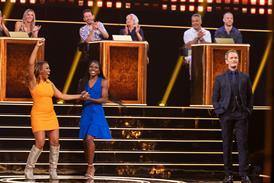The study - believed to be the first of its kind - is set to look at how subtitles and sign language on children's television could be improved and what benefits developments could bring to deaf children.
Ofcom last year ruled that an increased number of broadcasters would have to provide subtitles, signing and audio description services under the 2004 Ofcom Code on Television Access Services ( Broadcast, 29.7.04).
The BBC Broadcast-funded study will cover up to 10,000 NDCS members and 1,500 schools from the charity's deaf-friendly programme. The NDCS will also run focus groups with families, hearing-impaired children and carers. An NDCS spokesman clarified that the study would cover the needs of children up to the age of 18.
Ruth Griffiths, director of Access Services, BBC Broadcast, said: "The results from the study will be made available to Ofcom to ensure our research has the best effect on the industry possible."
NDCS technology services manager Richard Vaughan added: "This is a good opportunity to discuss different things at the outset of the Ofcom ruling [that will increase many channels' access service provision]."
BBC Broadcast will analyse results to determine how the access services can be improved before presenting its findings to Ofcom. The study is due for completion in October.


























No comments yet